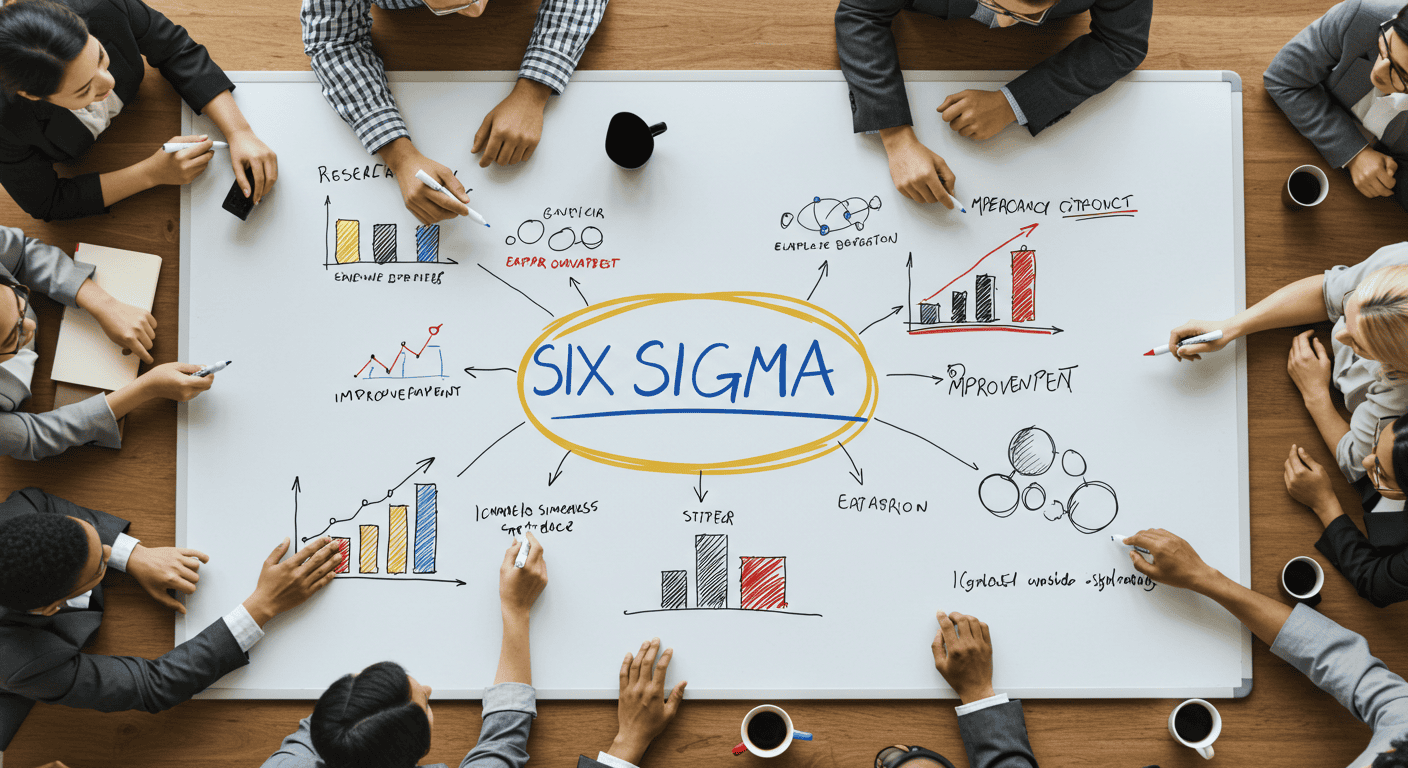Six Sigma training in Malaysia is a training that focuses on developing quality improvement and process optimization skills aligned with international standards while considering local business practices and industry requirements. The program emphasizes the practical implementation of Six Sigma methodologies in Malaysian manufacturing and service organizations.
Training is structured to help organizations achieve operational excellence through systematic problem-solving approaches and data-driven decision-making. Special attention is given to adapting Six Sigma principles to Malaysian workplace culture and organizational structures.
Six Sigma Training in Malaysia
Who Should Attend Six Sigma Training?
Quality managers, process engineers, operations managers, continuous improvement specialists, and process optimization professionals should attend Six Sigma training. This includes manufacturing and service sector professionals seeking to lead quality improvement initiatives in Malaysian organizations.
The training is particularly valuable for organizations implementing quality management systems and those seeking to enhance their competitive advantage through process excellence.
What Are The Core Methodologies Covered?
The training addresses the DMAIC (Define, Measure, Analyze, Improve, Control) methodology and DMADV (Define, Measure, Analyze, Design, Verify) for new process design. Participants learn systematic approaches to problem-solving and process improvement techniques.
Special emphasis is placed on statistical tools, quality management principles, and project management methodologies adapted for Malaysian business environments.
How Are Statistical Tools Implemented?
Participants learn advanced statistical analysis tools, including process capability studies, hypothesis testing, and regression analysis. Training covers applying statistical software and data analysis techniques commonly used in Malaysian industries.
The program emphasizes developing data-driven decision-making skills while ensuring accurate interpretation and presentation of statistical results.
What Project Management Skills Are Developed?
Training addresses project selection, scoping, and management techniques specific to Six Sigma initiatives. Participants learn to lead improvement projects while managing stakeholder expectations and team dynamics in Malaysian organisations.
Special focus is given to project prioritization, resource allocation, and measuring project success through tangible business results.
How Is Process Improvement Handled?
Participants learn comprehensive process improvement techniques, including value stream mapping, root cause analysis, and solution implementation strategies. Training covers both quick wins and long-term improvement approaches suitable for Malaysian organizations.
The program emphasizes developing sustainable process improvements while considering local operational constraints and business objectives.
What Quality Management Tools Are Covered?
Training includes quality management tools such as cause-and-effect diagrams, control charts, and failure mode effects analysis (FMEA). Participants learn to apply these tools effectively in Malaysian business contexts.
Special attention is given to integrating quality tools with existing quality management systems and local regulatory requirements.
How Is Change Management Addressed?
Participants learn change management strategies essential for implementing Six Sigma in Malaysian organizations. Training covers stakeholder management, resistance handling, and cultural change considerations.
The program emphasizes developing change leadership skills while maintaining harmony and employee engagement in Malaysian workplaces.
What Team Leadership Skills Are Enhanced?
Training develops team leadership capabilities including team formation, motivation techniques, and conflict resolution specific to Six Sigma projects. Participants learn to lead cross-functional teams effectively in Malaysian organizational structures.
Special focus is on building high-performing teams while respecting local cultural norms and hierarchical considerations.
How Is ROI Analysis Conducted?
Participants learn to calculate and demonstrate return on investment for Six Sigma projects, including cost-benefit analysis and financial impact assessment. Training covers proper methods for quantifying improvements and presenting results to management.
The program emphasizes developing business cases that resonate with Malaysian organizations’ financial objectives and reporting requirements.
What Certification Levels Are Available?
Training covers Six Sigma certification levels, including Yellow, Green, and Black Belt programs. Participants learn about certification requirements and career progression paths in quality improvement roles.
Special attention is given to maintaining certification standards while developing local Six Sigma expertise in Malaysian organizations.
How Is Process Control Maintained?
Training addresses process control techniques, including statistical process control, control plan development, and monitoring systems implementation. Participants learn to establish sustainable control mechanisms for improved processes.
The program emphasizes developing control strategies that ensure the long-term sustainability of improvements in Malaysian business environments.
What Industry-Specific Applications Are Covered?
Participants learn to apply Six Sigma methodologies in different Malaysian industries, including manufacturing, services, healthcare, and technology sectors. The training includes industry-specific case studies and applications.
Special focus is on adapting Six Sigma tools and techniques to address unique challenges in Malaysian industry sectors.

